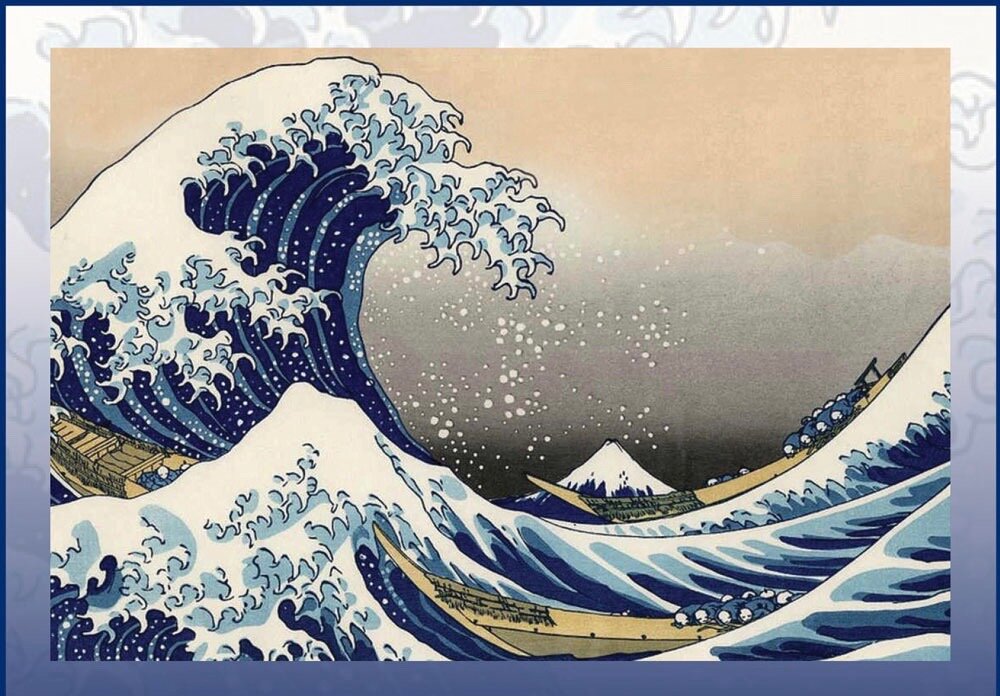At the beginning of the year, I wrote about intentions and how this beginning of the new year is a good time to reflect on our intentions for ourselves - both long and short term. Our intentions can act like a moral compass - helping us orient to what we perceive is the best and highest aspirations for ourselves and our lives.
However, right intention is the second factor in The Noble Eight-fold path. The first factor is Right View. Right View is about knowing on a deep level how the world works, how our minds work, and especially what leads to happiness and what leads to suffering. As Bhikku Bodhi says in my favorite The Noble Eight Fold Path, the Buddha saw no single factor “ so responsible for the arising of unwholesome states of mind as wrong view, and no factor so helpful for the arising of wholesome states of mind as right view….no single factor so responsible for the suffering of living beings as wrong view, and no factor so potent in promoting the good of living beings as right view." He further writes that our view of the world “governs our attitudes, our actions, our whole orientation to existence." Whether we fully understand what our views are, they are shaping how we approach and act in our world.
It is of supreme importance that our views and our intentions - whether or not we fully understand them - condition our actions. This example comes from “The Noble Eight Fold Path: Right Intentions” on the Contemplative Studies website.
"Intentions are the drivers of actions. They involve thoughtful directions to produce wholesome outcomes. The simplest way to look at 'Right Intentions' is as the aspiration to create greater happiness, wisdom, and well-being, and relieve suffering in ourselves and others. This is where 'Right View' comes in and provides the wisdom to discern which aspirations are likely to produce wholesome outcomes. We may start the day with the intent to help others in need and discern that donating an hour of our time to volunteer work at a homeless shelter would likely produce greater happiness, wisdom, and well-being, and relieve suffering. This is right intention at work, derived from 'Right View' and producing 'Right Actions.' It is critical that the intention is wholesome. The same action, donating time, might be motivated by a desire to appear kind and generous to others, to obtain a tax deduction, or to impress a romantic interest who also volunteers. All of these are intentions governed by desires and are not part of the path. So, the action is important but only to the extent that it is motivated by a 'Right Intentions.’”
By this example, we can see immediately the importance of motivation. Actions motivated by greed, hatred or delusion (or any of the other softer ways of expressing wanting, not wanting, and confusion) serve to further our own worldly benefit and are not part of the spiritual path. Actions motivated by generosity, loving kindness, renunciation reflect the “right view” of what leads to lasting happiness in this world and what doesn’t.
So as we spend time with “Right View,” “Right Intention,” and “Right Action,” we may find that it’s OK to plan a trip to lie in the sun and play in the surf in a warmer climate. But we may also find more heart and more lasting happiness in a trip planned to see family and strengthen connections or to visit a sacred site or to engage in activities that ease the burdens of others through volunteer work or other projects.
This is, I’m sure, a contemplation many of you have already engaged in. And as our lives progress, this contemplation becomes more and more important as a key part of the art of living the best life we can with the time we have been given.
The key contemplation is what leads to suffering and what leads to the end of suffering.

